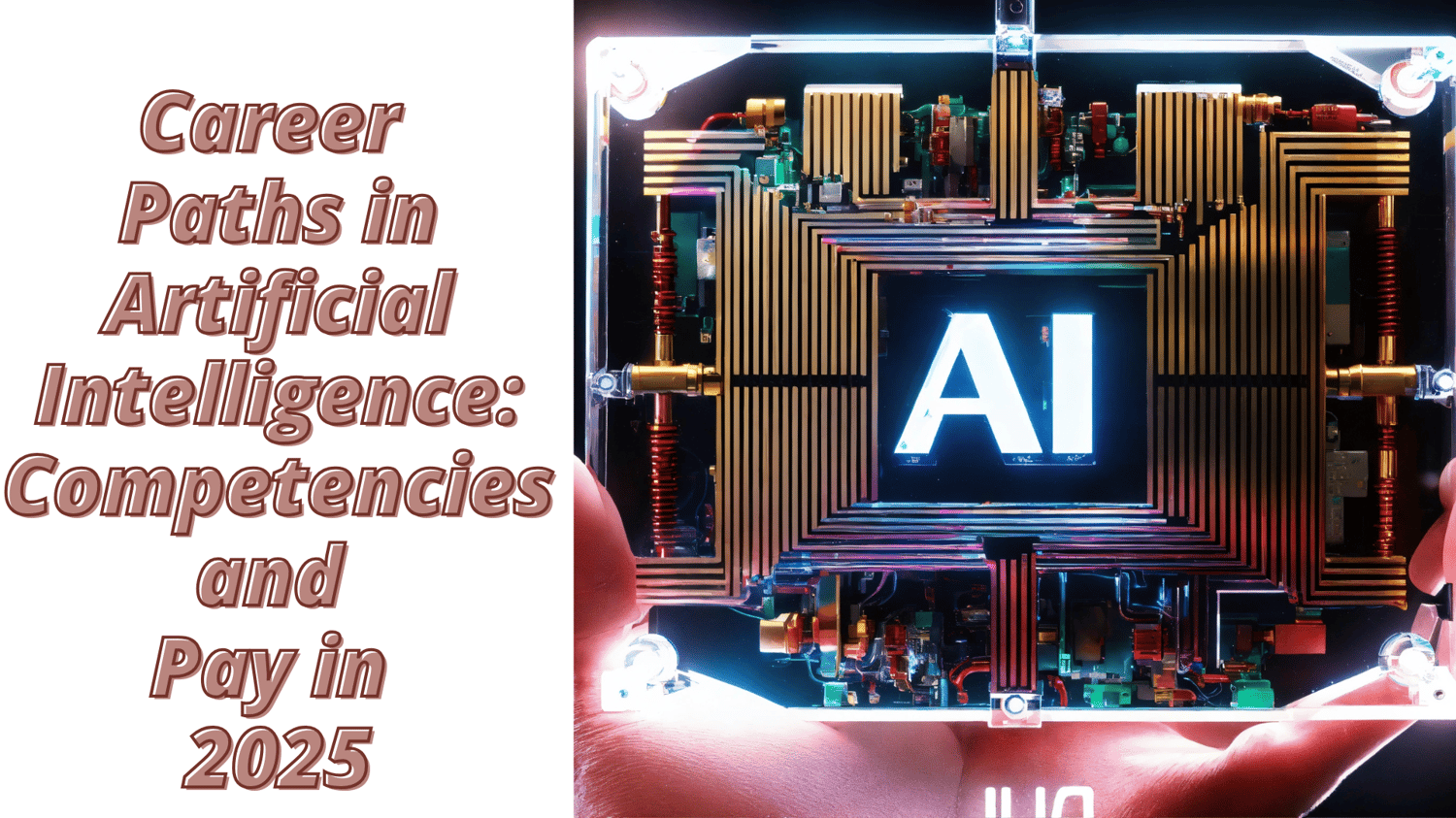
Career Paths in Artificial Intelligence: Competencies and Pay in 2025
Career Paths in Artificial Intelligence: Competencies and Pay in 2025
Introduction
Navigating the AI Landscape: A Guide to Promising Career Paths
Artificial Intelligence (AI) has rapidly transformed industries, from healthcare to finance, and continues to revolutionize the way we live and work. As AI technology advances, so do the career opportunities for those passionate about technology and innovation.
In this guide, we'll explore some of the most promising career paths in AI, providing insights into their responsibilities, required skills, and potential earning potential.
Core AI Roles and Their Impact
1. Machine Learning Engineer
- Key Responsibilities: Develop, train, and deploy machine learning models to solve real-world problems.
- Required Skills: Strong programming skills (Python, R), machine learning algorithms, data analysis, and cloud platforms.
- Career Path: Start as a data scientist or software engineer and specialize in machine learning.
2. Data Scientist
- Key Responsibilities: Extract insights from large datasets, build predictive models, and communicate findings to stakeholders.
- Required Skills: Statistical analysis, data mining, machine learning, and data visualization.
- Career Path: Consider a degree in statistics, mathematics, computer science, or a related field.
3. AI Researcher
- Key Responsibilities: Conduct research to advance the state-of-the-art in AI, publish research papers, and collaborate with industry and academia.
- Required Skills: Strong mathematical and statistical background, deep understanding of machine learning algorithms, and research skills.
- Career Path: Pursue a PhD in computer science or a related field.
4. AI Developer
- Key Responsibilities: Build and deploy AI-powered applications, including chatbots, recommendation systems, and image recognition tools.
- Required Skills: Full-stack development skills, machine learning, and understanding of AI frameworks like TensorFlow and PyTorch.
- Career Path: Start as a software developer and specialize in AI development or pursue a relevant degree.
5. Natural Language Processing (NLP) Engineer
- Key Responsibilities: Develop systems that can understand and process human language, such as chatbots, language translation, and sentiment analysis.
- Required Skills: Strong understanding of natural language processing techniques, machine learning, and deep learning.
- Career Path: Consider a degree in computer science, linguistics, or a related field.
6. Computer Vision Engineer
- Key Responsibilities: Develop computer vision systems that can analyze and interpret visual data, such as image and video recognition.
- Required Skills: Strong understanding of computer vision algorithms, machine learning, and deep learning.
- Career Path: Pursue a degree in computer science or electrical engineering and specialize in computer vision.
7. Robotics Engineer
- Key Responsibilities: Design, build, and program robots to perform tasks, from manufacturing to healthcare.
- Required Skills: Mechanical engineering, electrical engineering, computer science, and control systems.
- Career Path: Consider a degree in mechanical engineering, electrical engineering, or robotics.
8. AI Product Manager
- Key Responsibilities: Oversee the development and launch of AI products, working closely with technical teams and business stakeholders.
- Required Skills: Product management skills, understanding of AI technologies, and strong communication and leadership skills.
- Career Path: Start as a product manager and specialize in AI products or pursue a degree in business or computer science.
9. Chief AI Officer (CAIO)
- Key Responsibilities: Leading an organization's AI strategy, overseeing AI initiatives, and ensuring ethical and responsible AI practices.
- Required Skills: Strong leadership, strategic thinking, and a deep understanding of AI technologies and business operations.
- Career Path: Progress through leadership roles in AI, data science, or software engineering.
By exploring these diverse career paths and continuously upskilling, you can position yourself as a valuable asset in the rapidly evolving world of AI.

